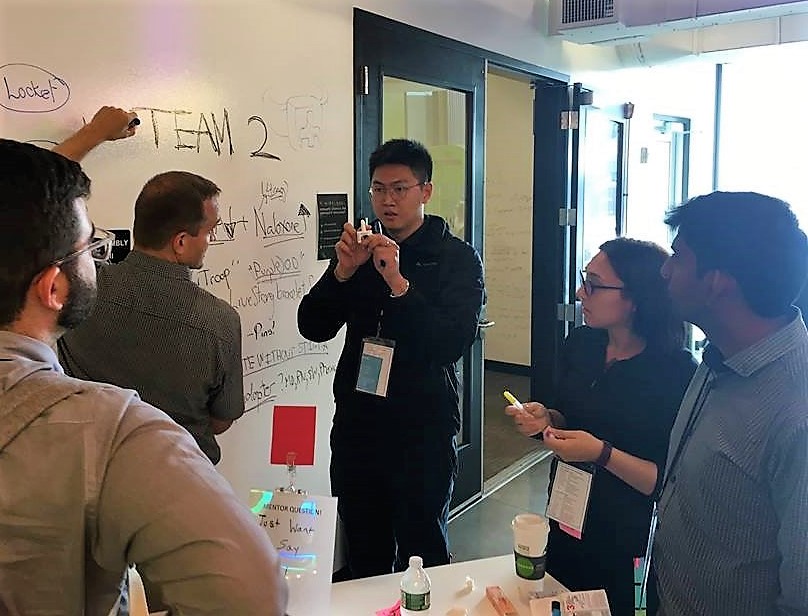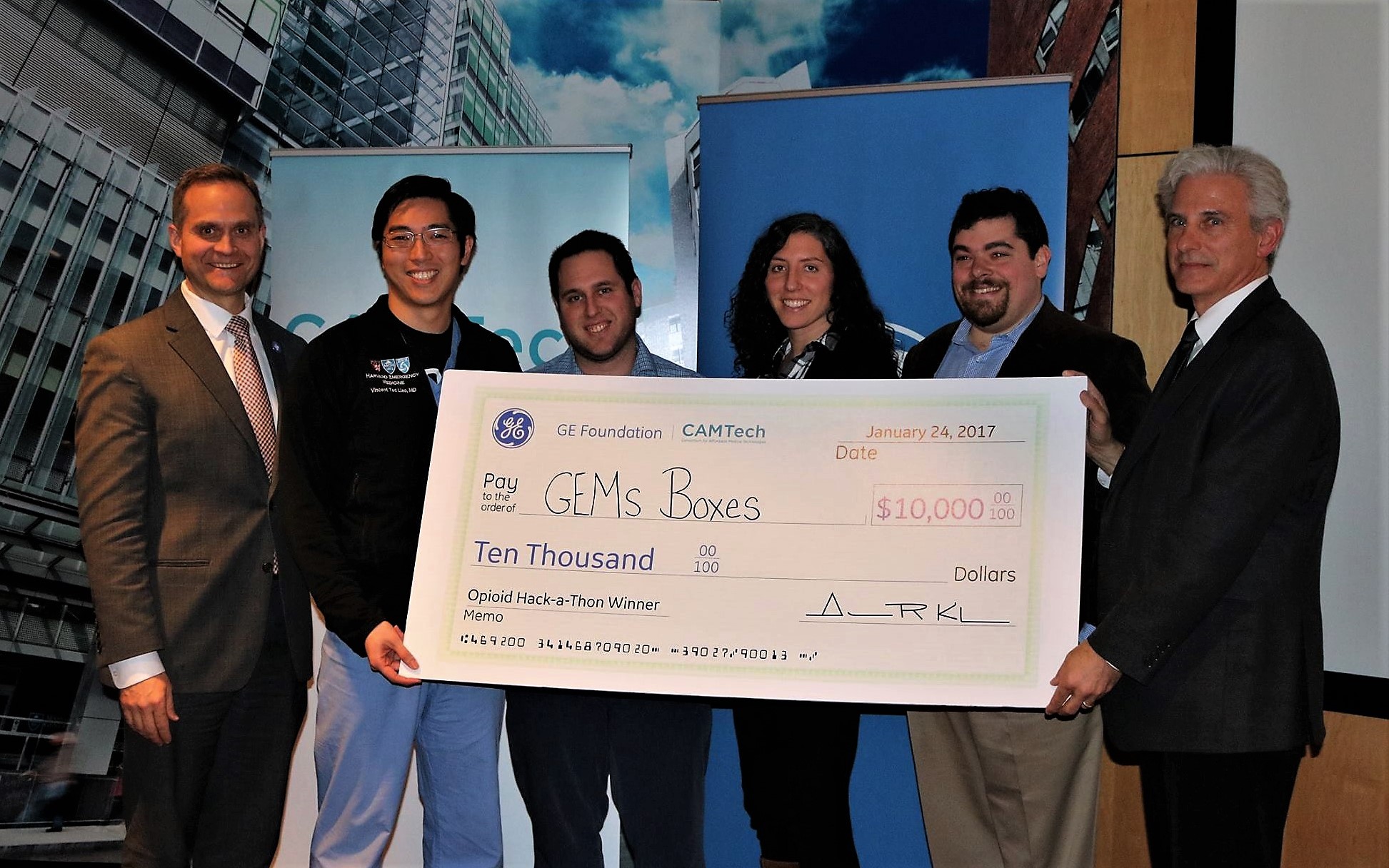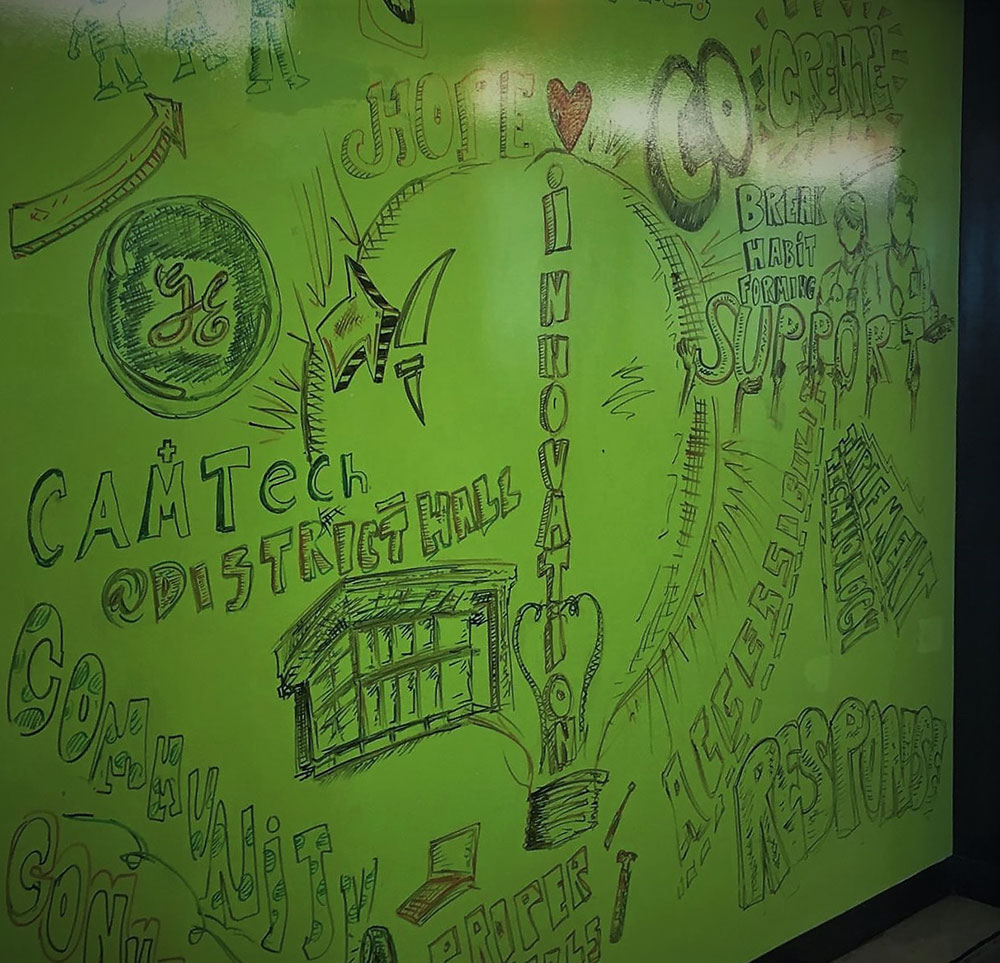present their ideas again in the post-hackathon award presentation, where nine teams showcased the progress they made since September.

“We invited all the teams to compete in the post-hackathon regardless of how they performed in the first event,” said Amy M. Wachler, marketing and communications manager at CAMTech. “I think that the fact that half of the participants came back in the winter and tried again, even if they didn’t have initial success, actually shows how committed and passionate they were to their projects. The team that actually won the post-hackathon was not one of the original winners.”
The organizations gave $10,000 to the team that came up with the winning concept of GEMs Boxes — boxes that would ideally be placed throughout cities and filled with life-saving supplies, such as the opioid overdose reversal drug naloxone. The team behind the idea explained that 911 dispatchers would have the ability to unlock those boxes and direct callers on how to use the supplies, which would turn any person witnessing an opioid overdose into a first responder.

With support from the Cambridge Police and Fire Department, the GEM Boxes team has been building and testing prototypes for the past three months. In addition to the capital, the team also received six months of acceleration support from CAMTech.
“We like to bring people from different disciplines in the same room to focus on one problem,” Olson said. “Getting people to work in a really time constraining fashion around a particular need spurs really great ideas. Putting patients and clinicians to work together with engineers, designers and business people who can make it all sustainable is what we think the secret sauce for improvement is.”
The winning idea is particularly significant to Olson as a physician, who has seen the difference immediate overdose responders can make.
“The last time I was on service, I had four people on the general medicine floor who were under 30 and had an anoxic brain injury from being resuscitated too late and not getting enough oxygen after a drug overdose,” he said. “That highlights a growing need for solutions that I have seen within the hospital myself. But everyone has had someone in their lives impacted by this [opioid] crisis, which is why we want to do similar events in other parts of the country.”















